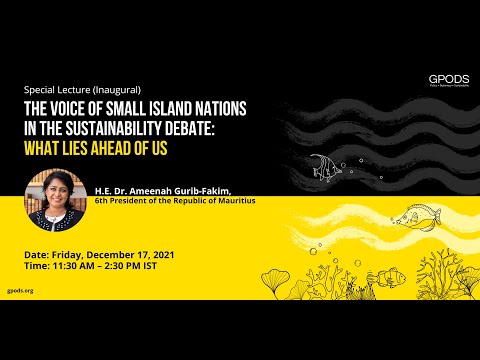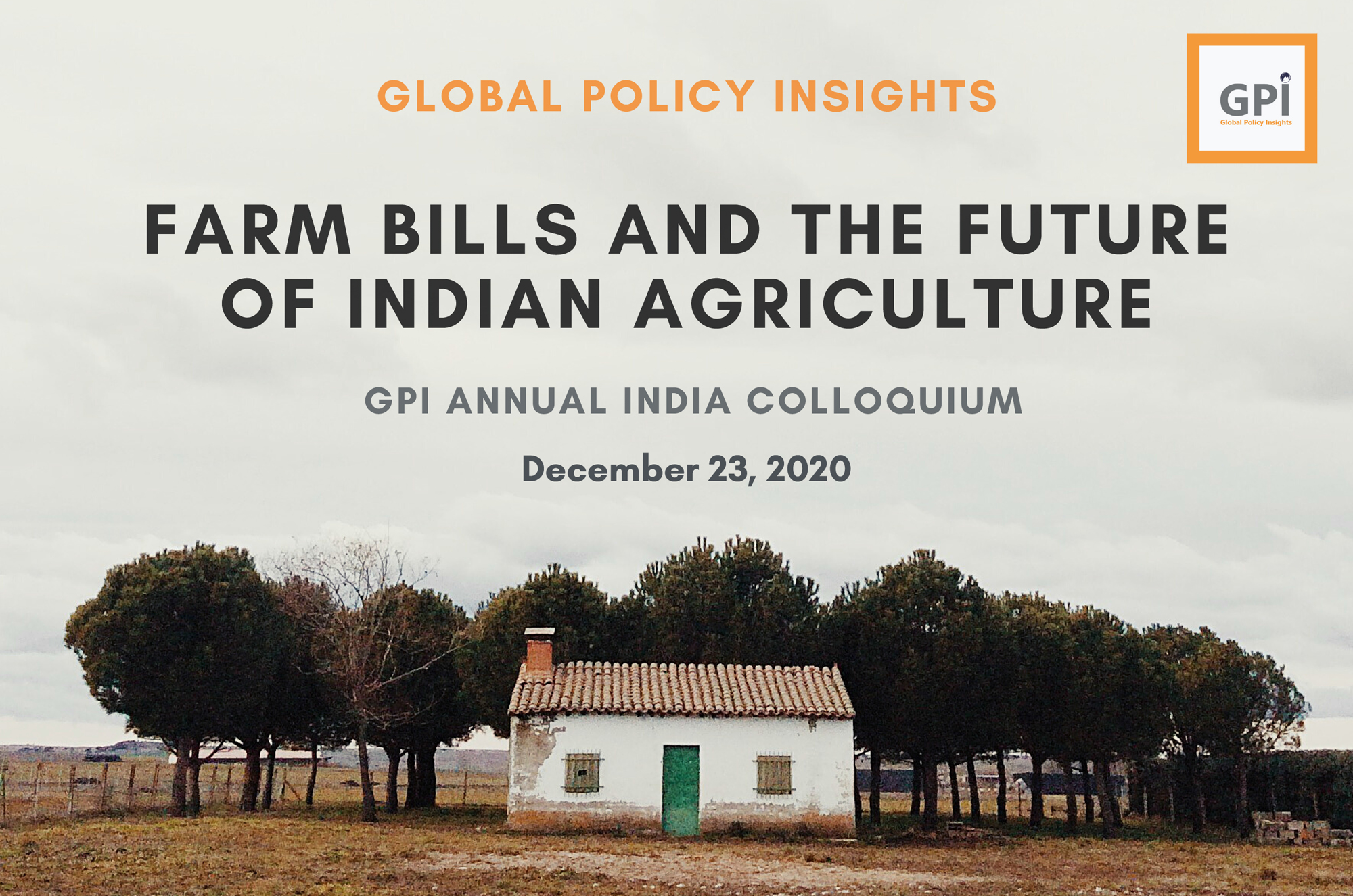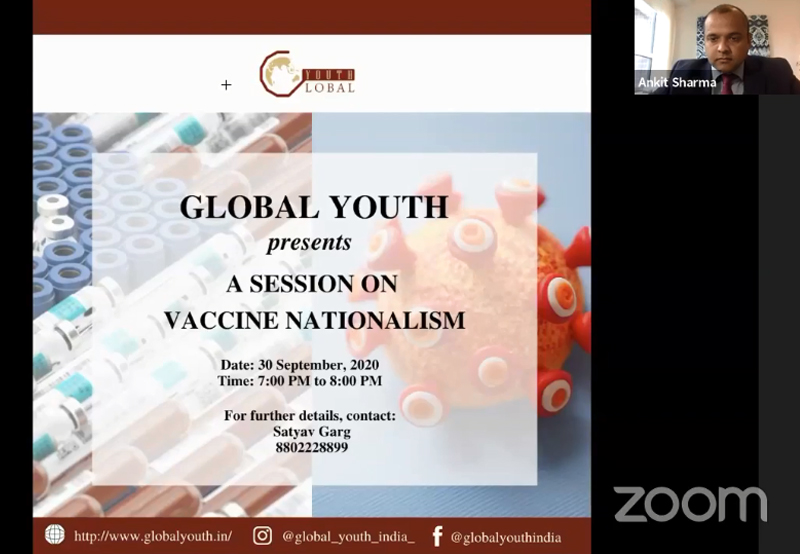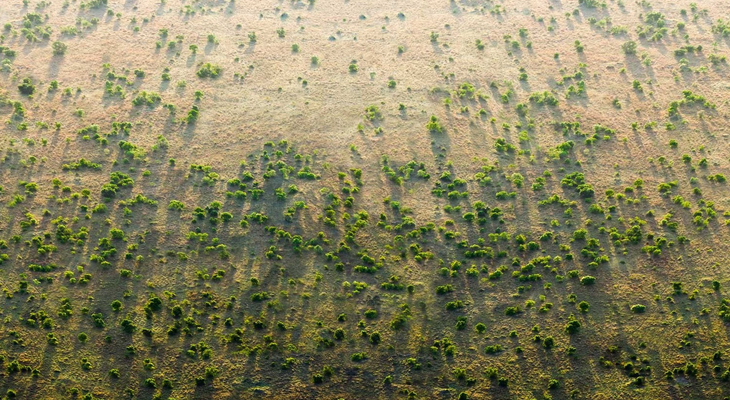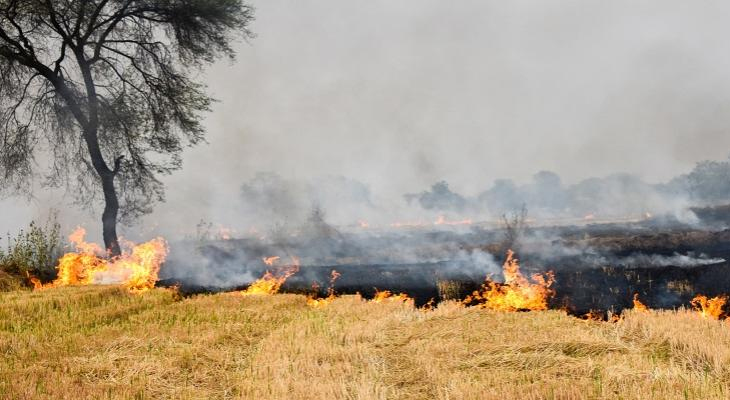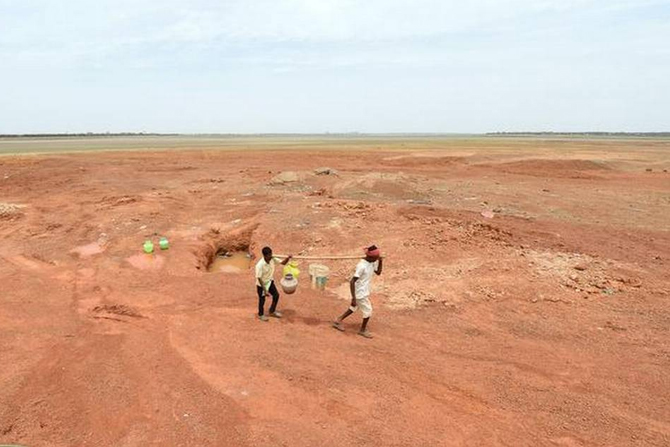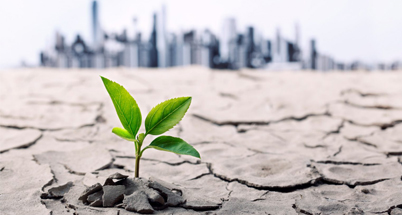
Policy alternatives for promoting organ donation in India
Nov 07, 2022 by Arpit Chaturvedi
India has one of the lowest organ donation rates in the world. As per the International Registry in Organ Donation and Transplantation (IRODaT), the number of persons donating organs per million population stood at 0.52 in 2018-19.
Urban Green Spaces: The Case for Dirty Earth
June 11, 2022 Abhinav Choudhry
A nice chunk of my childhood in Bhopal was spent playing in neighbourhood parks. These parks were a lifeline for children otherwise limited to terraces and gullies because big grounds were too few and too far...
The Voice of Small Small Nations in the Sustainability Debate: What Lies Ahead of Us - Special Lecture by Her Excellency Ameenah Gurib Fakim (Former President of Mauritius)
Dec 17, 2021 Arpit Chaturvedi
A special lecture was delivered by H.E. Ameenah Gurib-Fakim, 6th President of the Republic of Mauritius on December 17, 2021 where the distinguished speaker addressed distinct elements on the topic, ‘The voice of small island nations in the sustainability debate: What lies ahead of us’.
Fireside chat with H.E. Markova Concepción Jaramillo, Permanent Representative of Panama to the United Nations
Feb 13, 2021 Arpit Chaturvedi
If we want to see we are advanced in SDGs we need to have more focalized investments in each of the sectors to actually create a balance in SDGs. The need to focalize and redirect resources that we find in the economy to those SDGs is very important.
The Folly of Building Impenetrable Fortresses and Great Walls
Feb 08, 2021 Arpit Chaturvedi
Golkonda fort is one of the most impregnable forts from a design point of view. Located in Hyderabad in southern India, it was the capital of the Qutb Shahi dynasty in the sixteenth and seventeenth centuries. It was built by the Kakatiya rulers of the Deccan in the twelfth century and has housed the Bahamani kingdom in the fourteenth century as well.
Global Policy Insights (GPI) Annual India Colloquium.
Saturday Jan 16, 2021 Arpit Chaturvedi
The panel discussion was part of GPI’s effort to build consensus on some of the key policy issues impacting Indian society, economy, and polity. The theme for the colloquium was “Farm Bills and the Future of Indian Agriculture”.
India's March for Sustainable Future
Oct. 28, 2020 Nishant Tiwary
According to the World Bank, access to electricity can aid in the progress of a billion people who are located in Sub-Saharan Africa and South Asia.1 India did achieve a hundred per cent electrification in all its villages.2 However, challenges still linger to provide 24X7 uninterrupted , reliable and mostly green electricity to all the households
Vaccine Nationalism
Oct. 10, 2020 Ankit Sharma
"The secret of change is to focus all of your energy, not on fighting the old, but on building the new.”
Global Youth takes an immense pleasure to cordially invite you to a session on ‘Vaccine Nationalism’ with
- Eugene Chausovsky Research Fellow Centre Of Global Policy
- Sahil Deo co-founder CPC analytics
- Ankit Sharma Economist UNDP
Water Insecurity in India
Sep. 15, 2020 Anvi Lohia
Water security, as defined by the United Nations is “the capacity of a population to safeguard sustainable access to adequate quantities of acceptable quality water for sustaining livelihoods, human well-being, and socio-economic development, for ensuring protection against water-borne pollution and water-related disasters
Discussion with H.E. Ambassador Claudio Ansorena
September 10, 2020 Arpit Chaturvedi
Discussion on "Diplomacy, Peacebuilding & Sustainability in the 21st Century” with His Excellency, Claudio Ansorena, Ambassador of The Republic of Costa Rica to India
Discussion with H.E. Ambassador Christoph Heusgen
September 10, 2020 Arpit Chaturvedi
Discussion on "Diplomacy, Peacekeeping and Sustainability in the 21st Century” with His Excellency, Ambassador Christoph Heusgen, Permanent Representative of Germany to the United Nations.
Round Table Discussion with H.E. Ms. Louise Blais
September 10, 2020 Arpit Chaturvedi
Discussion on "Diplomacy, Peacebuilding & Sustainability in the 21st Century” with Her Excellency Ms. Louise Blais, Deputy Permanent Representative of Canada to the United Nations
A New Paradigm in the Financing of Solar Energy Projects
September 01, 2020 Nishant Tiwary
During the end of November of 2015, when the historic Paris Climate Agreement discussions were in motion, there was a declaration signed on the sidelines of the Paris Agreement amongst the sunshine countries.
Trade, Investment And Investing in the SDGs
July 23, 2020 Arpit Chaturvedi
The 17 Sustainable Development Goals (SDGs) were adopted by all 193 UN Member States in 2015 as part of the 2030 Agenda for Sustainable Development. It is estimated that achieving the SDGs will take between US$5 to $7 trillion with a $2.5 trillion investment gap in developing countries.
Land Management: A step towards mitigating Land Degradation
June 17, 2020 Himanshu Burad
According to the United Nations, land degradation is explained as the “reduction or loss of the biological or economic productivity and complexity of rain-fed cropland, irrigative cropland, or range, pasture, forest, and woodlands resulting from land uses or from a process or combination of processes arising from human activities.”
Impact of COVID-19 on Water Issues and the Way Forward
June 15, 2020 Eeshan Chaturvedi
During the on-going pandemic, most of us have observed or experienced too, that how nature is reclaiming its lost space. Whether it is reduced level of pollution in yamuna river, or cleaner air in cities, one of the reason for these ecological changes is the minimal human interaction with the environment.
Life Post COVID19: International Cooperation and the Environment
Monday June 1, 2020 Arpit Chaturvedi
Did you know Covid19 and nearly 50% of the diseases in human beings are zoonotic diseases (they come from animals). Did you know that the river Ganga is much cleaner since the lockdown? Do you want to know how the pandemic will change environmental regimes? How will it change the world order?
A Comparative Analysis of COVID-19 and Black Death of the Mid-14th Century
May 26, 2020 Arpit Chaturvedi
Pandemics like any major crisis, bring shockwaves that change the world order. In the mid-14th century, the black death or the bubonic plague triggered such trends that altered the very nature of the socio-economic system of the times.
Population Data in the Time of a Pandemic
May 12, 2020 ANVI LOHIA
India's population data is currently recorded once in every 10 years. The census of India Act was passed in 1948, which enabled the Registrar General and Census Commissioner of India to take charge of the proceedings.
Models to Make Vocational Training Work in India
March 19, 2020 Aishwarya Chaturvedi
The pursuit of establishing an effective vocational training system in India is not new. It started with the Wood’s Dispatch during the colonial era when in 1854 the Dispatch Report recommended that vocational education would prove to be “practically useful to the people of India in their different spheres of life”
Will Seed Bill 2019 deliver the goods?
December 6, 2019 Indra Shekhar Singh
Quality seeds are India’s lifeline. Farming, food and the livelihood of over 60 per cent of the Indian population depend on them. A failed harvest has the potential to curtail our GDP and force millions of Indians into poverty and hunger until the next harvest. Overall, India depends on seeds to sustain life.
Stubble Burning Farmers: Architects of Delhi’s Breathing Woes, or Hapless Scapegoats?
November 15, 2019 Abhinav Choudhry
From being a topic that only schoolchildren used to care about while writing essays, to capturing national headlines on a regular basis, air pollution in India has come a long way. The Air Quality Index (AQI) is now being tracked as keenly as major stock market indices like the BSE Sensex. This winter in Delhi, AQI levels reached 999, over sixteen times the recommended level of 60; schools were once again shut down, and everyone in Delhi
Does India Need More Policy Action for Its Senior Citizens?
September 13, 2019 Arpit Chaturvedi
India is a young country. More than half of its population is under 25 years of age, 65 percent of its population is 35 or under, and the median age of the country is just about 29. Naturally, this is a matter of both great promise and immense anxiety for the Indian government.
Creating a future-proof curriculum for the digital age
September 13, 2019 Nikki Kaye
New Zealand is a small country, but we punch above our weight when it comes to digital technology. Robotics, artificial intelligence and advances in connectivity are revolutionising our businesses, industry and community. With a number of innovative local businesses like Rocket Lab, who are launching rockets into outer space, New Zealand has the opportunity to be a world leader in digital technologies. We need to make sure our school curriculum is world leading too.
Policymakers, wake up! Floods in Chennai are not Alarm bells, they are explosions
July 15, 2019 Kalvakuntla Kavitha
In 2015, the Comptroller and Auditor General of India (CAG) called the Chennai Floods a “man made disaster” and indeed it is true that the encroachment of lakes and river floodplains has driven the city of Chennai in this seemingly ineluctable situation once again in 2019.
'Environmental Finance — Private Capital and Private Profits for Public Gain— Pretty Promising, though not without Pain'
Abhinav Choudhry is a currently working with Tata Cornell Institute at the Cornell SC Johnson College of Business, Cornell University
May 17, 2019 Abhinav Choudhry
‘Environmental finance’, the leveraging of the tools of finance for environmental benefit, has been around for a few years, but it has still not gained currency outside a relatively niche community. In fact, many people I have met, prima facie, regarded the term to be oxymoronic even though they were often quite intrigued by it.
Inclusive Innovations in Education Praxis
Ritika A Kukreja is a Research Coordinator at Global Policy Insights, with a focus on Sustainable Development.
May 03, 2019 Ritika A. Kukreja
What would your first course of action be if you were informed that there are approximately ten million possibilities to locate the next Hawking, Kahlo or Ramanujan in some of the globe’s most deprived neighbourhoods?
Antibiotic Resistance: Fighting a Multi-Headed Demon
Abhinav Choudhry is a Research Support Specialist and graduated with a Master of Public Administration degree from Cornell University
Mar 04, 2019 Abhinav Choudhry
The 1928 discovery of penicillin was probably the 20th century’s singular medical discovery with the greatest impact, not only directly saving millions of lives but spawning an entire new field of antibiotics.



